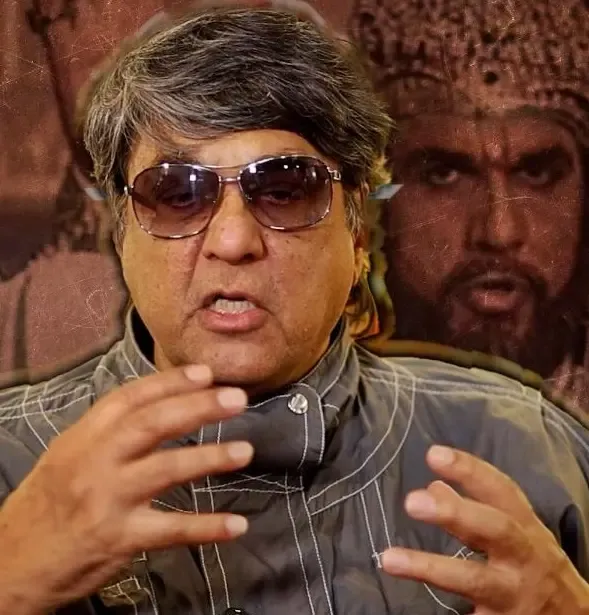Is Mukesh Khanna Right to Slam China’s Support for Pakistan?

Synopsis
Key Takeaways
- Mukesh Khanna criticizes China's stance on Pakistan.
- The terror attack in Pahalgam escalated regional tensions.
- Khanna calls for greater unity within the Hindu community.
Mumbai, May 2 (NationPress) Renowned actor Mukesh Khanna, celebrated for his iconic portrayal of 'Shaktimaan', criticized China's recent remarks concerning its backing of Pakistan.
In a social media post, Khanna shared an image of Pakistan's Prime Minister Shehbaz Sharif alongside Chinese President Xi Jinping, denouncing what he perceives as 'brazen hypocrisy.' On Friday, Mukesh took to Instagram, posting the image of Shehbaz Sharif and Xi Jinping, captioning it, “WHAT A JOKE! China asserts its support for Pakistan. China, which is inciting unrest in South Asia, claims: China will always back Pakistan for peace and stability in South Asia. Can there be a more significant joke than this?”
On April 27, China stated its support for Pakistan, reaffirming its dedication to safeguarding the country's sovereignty and security concerns. Foreign Minister Wang Yi called for both New Delhi and Islamabad to exercise restraint following the terror attack in Pahalgam. Wang's comments emerged amid rising tensions between India and Pakistan after the April 22 terrorist assault on tourists near Pahalgam, resulting in the deaths of 26 individuals.
The attack was attributed to the Resistance Front, a group connected to the Pakistan-based Lashkar-e-Taiba.
In another context, Mukesh Khanna had previously raised doubts regarding the unity within the Hindu community. He expressed worries about whether Hindus were genuinely united despite sharing a common cultural and religious background. In his recent appearance on Shardul Pandit's podcast, Mukesh emphasized the necessity for unity within the community, especially during tough times.
“If you are not part of our religion, that’s sufficient; we don’t say anything more. One weakness of our religion is something we are grappling with. Our numbers are dwindling. Even after reaching 80 crores, we have 80 divisions. If you just whistle, all Muslims worldwide unite. But if you shout in the Hindu community, they ask, ‘What do you want?’”
The actor expressed his frustration over how Hindus often find it difficult to unite in times of crisis, unlike the solidarity shown by other communities.
“They don’t assist, and they won’t because they say, ‘I’m Jain,’ ‘I’m Buddhist,’ ‘I’m Sikh,’ or ‘I’m Marwari.’ Someone needs to make them realize that first and foremost, they are Hindu. It’s essential for them to understand that they are Hindu above all,” Mukesh Khanna articulated.










